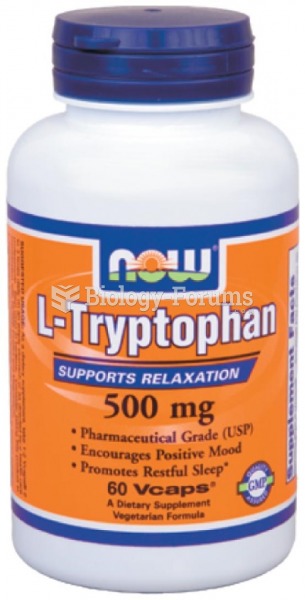|
|
|
A recent study has found that following a diet rich in berries may slow down the aging process of the brain. This diet apparently helps to keep dopamine levels much higher than are seen in normal individuals who do not eat berries as a regular part of their diet as they enter their later years.
Sildenafil (Viagra®) has two actions that may be of consequence in patients with heart disease. It can lower the blood pressure, and it can interact with nitrates. It should never be used in patients who are taking nitrates.
It is widely believed that giving a daily oral dose of aspirin to heart attack patients improves their chances of survival because the aspirin blocks the formation of new blood clots.
There are actually 60 minerals, 16 vitamins, 12 essential amino acids, and three essential fatty acids that your body needs every day.
Approximately 500,000 babies are born each year in the United States to teenage mothers.
 Intramuscular drug administration: (c) the needle is inserted at a 90° angle: Source: Pearson Educat
Intramuscular drug administration: (c) the needle is inserted at a 90° angle: Source: Pearson Educat
 Development encompasses both gains and losses. Sometimes a health crisis (loss) can result in a heal
Development encompasses both gains and losses. Sometimes a health crisis (loss) can result in a heal





